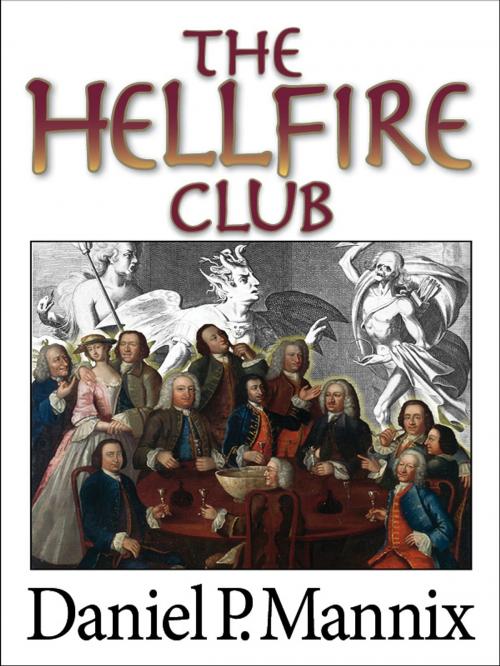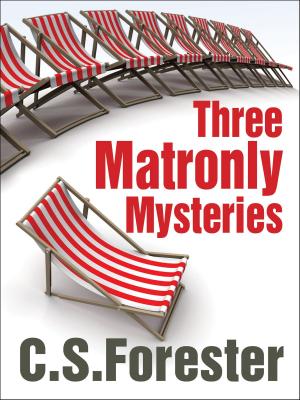| Author: | Daniel P Mannix | ISBN: | 9781618867438 |
| Publisher: | eNet Press Inc. | Publication: | February 23, 2015 |
| Imprint: | Language: | English |
| Author: | Daniel P Mannix |
| ISBN: | 9781618867438 |
| Publisher: | eNet Press Inc. |
| Publication: | February 23, 2015 |
| Imprint: | |
| Language: | English |
Brilliant, amusing, and utterly immoral, young noblemen, politicians, artists and other eminent men of eighteenth century England thronged to the abbey of Medmenham and the elaborately decorated caves and gardens of West Wycombe Park to attend meetings of a club that outraged and threatened the security of an entire country – the notorious Hellfire Club. Dedicated to black magic, sexual orgies, and political conspiracies, the records of their elaborately obscene rituals, jests, and parties have both fascinated and appalled the world for over three centuries.
The Hellfire Club became popular during an age of scandal. Standards of respectability had become middle class – a middle class who knew nothing of art and literature and whose outlook was bound by a set of stereotyped conventions. Respect for the monarchy, religion, or the ideals of decency and morality? Bah humbug. The club's members – “mad geniuses who. . . could do anything from writing double entendre verses in Greek to ruining an opposing statesman by a clever satirical sketch” – set out to ridicule and destroy these conventions and at times they almost succeeded.
The originator and guiding presence of the Hellfire Club was Sir Francis Dashwood – son of a grim and fiercely ruthless baronet, heir to one of the great fortunes of the time, and George III's intimate friend. Possessing a flair for politics and a proclivity for the profane, it is largely because of his influence that the Hellfire Club was to eventually count among its members the Prime Minister of England, the Chancellor of the Exchequer, the Lord Mayor of London, the First Lord of the Admiralty, the son of the Archbishop of Canterbury, several of England's greatest artists and poets, the Prince of Wales, and Benjamin Franklin.
Red robes, screaming girls, unscrupulous madams, firelight on the walls of a cave, and unspeakable acts for the sake of amusement. Daniel P Mannix addresses the reasons for the rise of the Hellfire Club, its singular influence on the course of history, and its inevitable destruction.
Brilliant, amusing, and utterly immoral, young noblemen, politicians, artists and other eminent men of eighteenth century England thronged to the abbey of Medmenham and the elaborately decorated caves and gardens of West Wycombe Park to attend meetings of a club that outraged and threatened the security of an entire country – the notorious Hellfire Club. Dedicated to black magic, sexual orgies, and political conspiracies, the records of their elaborately obscene rituals, jests, and parties have both fascinated and appalled the world for over three centuries.
The Hellfire Club became popular during an age of scandal. Standards of respectability had become middle class – a middle class who knew nothing of art and literature and whose outlook was bound by a set of stereotyped conventions. Respect for the monarchy, religion, or the ideals of decency and morality? Bah humbug. The club's members – “mad geniuses who. . . could do anything from writing double entendre verses in Greek to ruining an opposing statesman by a clever satirical sketch” – set out to ridicule and destroy these conventions and at times they almost succeeded.
The originator and guiding presence of the Hellfire Club was Sir Francis Dashwood – son of a grim and fiercely ruthless baronet, heir to one of the great fortunes of the time, and George III's intimate friend. Possessing a flair for politics and a proclivity for the profane, it is largely because of his influence that the Hellfire Club was to eventually count among its members the Prime Minister of England, the Chancellor of the Exchequer, the Lord Mayor of London, the First Lord of the Admiralty, the son of the Archbishop of Canterbury, several of England's greatest artists and poets, the Prince of Wales, and Benjamin Franklin.
Red robes, screaming girls, unscrupulous madams, firelight on the walls of a cave, and unspeakable acts for the sake of amusement. Daniel P Mannix addresses the reasons for the rise of the Hellfire Club, its singular influence on the course of history, and its inevitable destruction.















